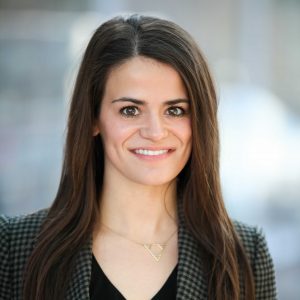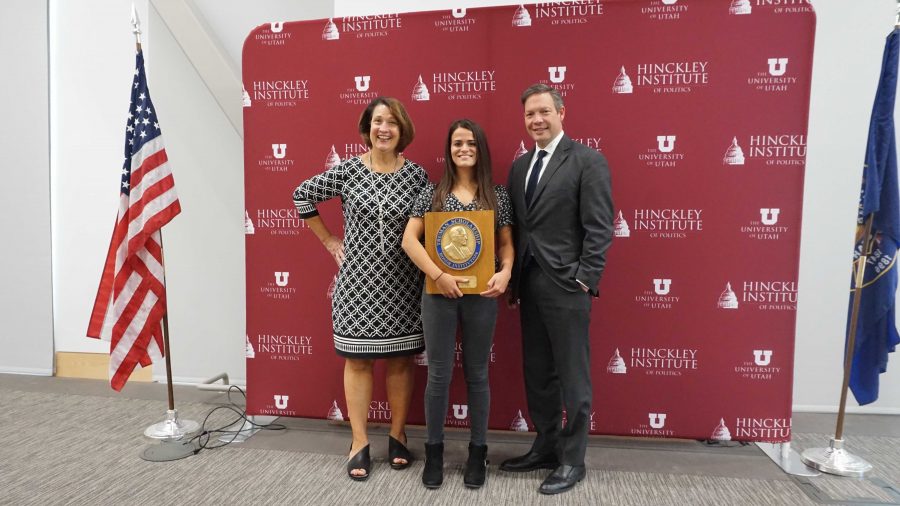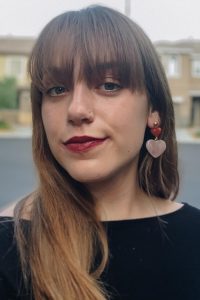On April 15, the University of Utah named its first Truman Scholarship recipient since 2014.
The Harry S. Truman Scholarship Foundation began in 1975 in honor of President Harry S. Truman. The Foundation is an executive branch agency that distributes $30,000 scholarships annually to university students in their junior year to go towards graduate studies. Each year, 55 to 65 students are selected by the Foundation to receive the scholarship.
At the U, the Hinckley Institute of Politics helps students to connect with the Foundation.
“Students apply to the Hinckley Institute to be nominated for the Truman Scholarship,” said Gina Shipley, managing director of national internships at Hinckley. “Truman applicants submit their written application to the Hinckley and the candidates are interviewed by a Truman Scholarship Committee.”

Samantha Thorne, a double major at the U in economics and international studies who completed three local internships, a D.C. internship and a global internship in Australia, began the formal application process in November but started preparing for the process during her freshman year of college.
“I had an advisor at the Hinckley that took me aside and helped me apply for internships and plan a roadmap of my undergrad degree to eventually apply for the Truman,” she said. “I really applied mainly because the Hinckley directed me toward it and thought I’d be a good fit.”
The application for the Truman scholarship is also intensive.
“It’s your entire life biography, basically, but you have to be succinct,” Thorne said. “The application also includes multiple letters of recommendation, a transcript, a policy proposal [and] many, many essays.”
Thorne then participated in a panel interview through the Hinckley Institute, which included most of the Hinckley staff, as well as prominent community members and a few previous Truman scholarship winners from Utah. She was chosen as a finalist through Hinckley, and her application was sent on to the Foundation’s selection committee.
Thorne was selected by the selection committee to be a finalist for the scholarship in February 2019 to interview with the committee, where she interviewed in Phoenix with a handful of other finalists.
“One by one, we were pulled out for interviews. Truman is not for the faint of heart,” Thorne said. “You have all these lawyers, judges, past Truman recipients and people who have really taken that responsibility of being a Truman and pay it forward, but these interviews were quite tough. They want to know that you’re dedicated to public service, that you’re academically inclined, and that you’re a ‘change agent.’”
To prepare for these interviews and round out her policy proposal, on which she chose to focus on election cybersecurity, Thorne had to do a lot of research.
“Election cybersecurity can do so much to improve voter confidence. My theory is that if you don’t trust your elections, you won’t trust your elected officials or your government as a whole and begin to be disenfranchised from the system because you think that your voice isn’t being heard, which deteriorates the rule of law. I have never learned so much so fast in my life,” Thorne said. “I’m very happy that I did it. I thought I was well versed in current events — I was a reporter in D.C., I read the news every day — but I learned so much about U.S. politics, elections [and] the world as a whole. It’s a renaissance woman test.”
Thorne will finish her undergraduate degree this summer and plans to go to law school with her Truman scholarship to study cyberlaw and eventually work in a congressional committee on intelligence.
“Honestly I had no idea what I wanted to be until this process. It had a lot of different ideas, but doing this application helped me identify what my skills are, what I find interesting and how I can apply that to public service,” Thorne said. “Truman is all about mentorship. Once I found out I got it, I got an influx of emails from so many Truman scholars who got it in the 70s and the 90s and just a few years ago, from Utah and around the U.S. This is all about empowerment. We’re around people who have similar values and hopes for our nation and the world as a whole. It’s a community, and they really empower you to make the changes you want to. It’s a very proactive scholarship.”
“I’m so grateful for all of the help I received. If it wasn’t for different professors, host offices, mentors and advisors at the Hinckley, I would not be where I am. I’m excited to pay it forward.”
For more information on the Hinckley Institute, visit hinckley.utah.edu. To learn more about the Truman scholarship or the Harry S. Truman Foundation, visit https://www.truman.gov.



